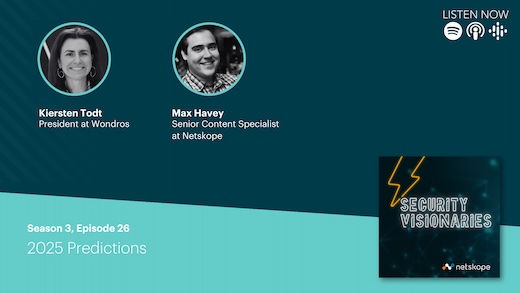It should come as no surprise to anyone who has lived through the last three years that the way we work has changed drastically. The onset of the COVID-19 pandemic forced organizations to figure out how to better enable their employees to work from home securely and easily. The result was an acceleration of trends that were already underway. Work is now hybrid, and adaptability and flexibility continue to be key requirements for organizations working to secure a distributed hybrid workforce.
Jason Clark, Chief Security and Strategy Officer at Netskope, echoed similar sentiments back in July about enabling hybrid work noting, “In an ideal hybrid working model, employees feel empowered and more productive given the freedom to do their work from any location or device, whenever it’s most convenient. Users need fast, secure access to their data, regardless of where their applications are located.”
Alongside better securing a hybrid workforce, managers also need to better understand how to work with today’s increasingly hybrid talent market. Manager quality is often cited as one of the drivers of employees leaving a company. As a result, bad employee experience can lead to employees “packing up” sensitive data and, whether they realize it or not, becoming an insider threat. The July 2022 Netskope Cloud and Threat Report found that 20% of users upload more data than usual to personal apps and instances during their final days of employment.
What this shows is how proper management, amid so much movement by employees, not only serves to impact employee experience, but also the security of an organization’s sensitive data.
As organizations continue to figure out how to best enable their increasingly hybrid workforce, Gartner® offers guidance on this hot topic in a new paper, “Future of Work Reinvented: Managing in a Hybrid World.”
Some of the key strategies the report include:
- Equipping teams for resilience by investing tools and technology that will help hybrid employees better collaborate in a safe way, so managers can be more flexible.
- Investing in human-centric managers to build the skills that help to collaborate in a way that is secure and prioritizes mental health and well-being alongside existing workloads.
- Pivoting to performance assessment by impact to assess performance by outcomes that reflect business contributions at large and enhance communication between employees and managers to better address friction.
If you’d like to learn more about how you can implement these strategies and what recommendations Gartner offers for successfully achieving them, you can download a complimentary copy of the report here.
Gartner, Future of Work Reinvented: Managing in a Hybrid World, Caitlin Duffy, Whit Andrews, Tina Nunno, Benjamin Manzione, 11, March 2022
GARTNER is a registered trademark and service mark of Gartner, Inc. and/or its affiliates in the U.S. and internationally and is used herein with permission. All rights reserved.




 Voltar
Voltar 





















 Leia o Blog
Leia o Blog